Books
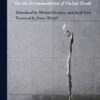
Murderous Consent: On The Accommodation of Violent Death
By Marc Crépon. Translated by Michael Loriaux and Jacob Levi. This book details our implication in violence we do not directly inflict but in which we are structurally complicit: famines, civil wars, political repression in far-away places, and war, as it’s classically understood. Marc Crépon insists on a bond between ethics and politics and attributes violence…
Read more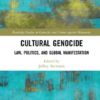
Cultural Genocide: Law, Politics, and Global Manifestations
Edited by Jeffrey S. Bachman. This book explores concepts of Cultural genocide, its definitions, place in international law, the systems and methods that contribute to its manifestations, and its occurrences. Through a systematic approach and comprehensive analysis, international and interdisciplinary contributors from the fields of genocide studies, legal studies, criminology, sociology, archaeology, human rights, colonial…
Read more
The Handbook of Psychoanalytic Holocaust Studies
Edited by Ira Brenner. This book is a unique compilation of essays about the genocidal persecution fueling the Nazi regime in World War II. Authors from four continents offer their perspectives, clinical experiences, findings, and personal narratives on such subjects as resilience, remembrance, giving testimony, aging and mourning. There is an emphasis on the intergenerational transmission…
Read more
Intellectual Collaboration with the Third Reich: Treason or Reason?
Edited by Maria Björkman, Patrik Lundell and Sven Widmalm. This book investigates the rather neglected “intellectual” collaboration between National Socialist Germany and other countries, including views on knowledge and politics among “pro-German” intellectuals, using a comparative approach. These moves were shaped by the Nazi system, which viewed scientific and cultural exchange as part and parcel of their cultural…
Read more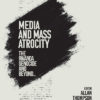
Media and Mass Atrocity: The Rwanda Genocide and Beyond
Edited by Allan Thompson. Media and Mass Atrocity revisits the debate over the role of traditional news media in Rwanda, where, confronted by the horrors taking place, international news media, for the most part, turned away, and at times muddled the story when they did pay attention. Hate-media outlets in Rwanda played a role in…
Read more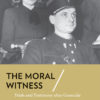
The Moral Witness: Trials and Testimony after Genocide
By Carolyn J. Dean. The Moral Witness is the first cultural history of the “witness to genocide” in the West. Carolyn J. Dean shows how the witness became a protagonist of twentieth-century moral culture by tracing the emergence of this figure in courtroom battles from the 1920s to the 1960s—covering the Armenian genocide, the Ukrainian pogroms, the Soviet…
Read more
Holocaust Studies: Critical Reflections
Edited by Steven T. Katz. The great majority of Holocaust scholarship concentrates heavily, if not almost completely, on the Final Solution from the German side. The distinctive feature of this book, both individually and as a collection, is its concentration on the Holocaust from a Judeo-centric point of view. The present essays make a unique…
Read more
Victims and Perpetrators: Dutch Shoah, 1933/45 and beyond
By Hans Derks. In this book, historian Hans Derks explains how more than 75% of the Jewish population was arrested, deported or murdered in concentration camps during the Shoah in the Netherlands by looking closely at the social and religious characteristics of Dutch society. He also unveils the extensive collaboration of the country’s state-bureaucracy with the German…
Read more
Watching Sympathetic Perpetrators on Italian Television: Gomorrah and Beyond
By Dana Renga. This book offers the first comprehensive study of recent, popular Italian television. Building on work in American television studies, audience and reception theory, and masculinity studies, Sympathetic Perpetrators and their Audiences on Italian Television examines how and why viewers are positioned to engage emotionally with—and root for—Italian television antiheroes. Italy’s most popular exported series feature…
Read more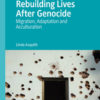
Rebuilding Lives After Genocide: Migration, Adaptation and Acculturation
By Linda Asquith. This book examines how genocide survivors rebuild their lives following migration after genocide. Drawing on a mixture of in-depth interviews and published testimony, it utilizes Bourdieu’s concept of social capital to highlight how individuals reconstruct their lives in a new country. The data comprises in-depth interviews with survivors of the Rwandan and Bosnian…
Read more
